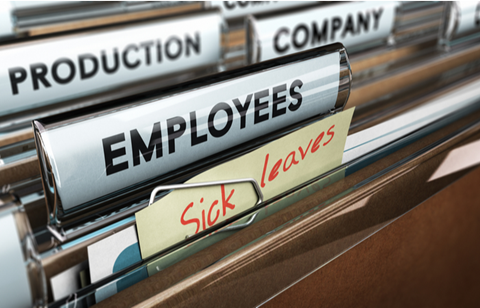
Public services including healthcare, transport and education are coming under strain amid crippling Covid-19 (Coronavirus) absence rates.
Key figures in each sector warned of the impact of soaring cases of the virus as the highly transmissible Omicron strain sweeps the UK.
Health leaders indicated that the pressure of absences on services in England was becoming unsustainable, with thousands of NHS staff off sick or self-isolating. Figures published last week showed 24,632 staff at NHS trusts in England were absent through Covid-19 sickness or self-isolation on Boxing Day alone.
Since then, at least six NHS trusts have declared critical incidents, indicating that they may not be able to deliver some priority services. On New Year's Day, the United Lincolnshire Hospitals NHS Trust said it was “unable to maintain safe staffing levels” which had resulted in care being compromised in areas including stroke and cardiac care.
Dr Chaand Nagpaul, council chair at doctors' body the British Medical Association, suggested that an average of about 178 staff were off work at each acute trust in England.
“At the very time the NHS is standing up hundreds of extra beds in Nightingale units to prepare for a surge in hospital admissions, the number of staff absences is rising rapidly – up 31% in a week for acute trusts in England alone,” he said.
“Furthermore, these statistics do not take into account staff at GP practices, community hospitals or other healthcare settings, so in reality the number will be much higher – and the impact on patients much further-reaching. With a record backlog in care, we cannot afford to be losing such a high number of staff.”
NHS staff are reportedly struggling to access lateral flow and PCR tests, leaving them unable to show the negative tests that allow them to work, added Nagpaul.
The Daily Telegraph reported that up to 10 million “critical” workers would soon be able to access Covid tests through their employers.
Last month it was announced that people in England, Wales and Northern Ireland who have tested positive for Covid-19 could stop self-isolating after seven days instead of 10, provided they receive two negative lateral flow test results on days six and seven. In Scotland the 10-day self-isolation period remains.
Matthew Taylor, chief executive of the NHS Confederation, said: “The NHS is facing a perfect storm of Covid hospital admissions and illness rising at a very alarming rate alongside increasing numbers of frontline workers being off sick.
“While the government seems determined not to increase restrictions in England, it is vital we all behave in ways that will not exacerbate an already dangerous situation.”
Taylor told Times Radio that the next few weeks would be “very difficult” for health providers.
“You don’t know where somebody is going to get sick and, when somebody does get sick, it’s then more likely that other people in that team will get sick - and hospitals and healthcare systems are complex, they’re inter-dependent,” he said.
Elsewhere, as more than 187,000 new Covid-19 cases were recorded on 3 January, the Rail Delivery Group said that roughly one in 10 rail workers was off work, affecting crew availability on trains operated by Scotrail, CrossCountry, LNER and Southern.
Southern is not operating any direct services to London Victoria – a major commuter hub – until next Monday (10 January), while ScotRail has cancelled around 8% of daily services as part of a reduced timetable in place until 28 January.
ScotRail managing director Alex Hynes told the BBC’s Today programme: “Over the last few weeks, because of the record number of Covid cases, we’ve been cancelling too many trains. So we’ve decided to proactively put this revised timetable in, to give customers greater certainty on the services we can offer.”
Schools have also reported staff shortages because of self-isolation rules and sickness. As the new term started in England and Northern Ireland, the government appealed for retired and former teachers to come back to the profession.
“It’s a matter of thousands of people who have come forward to say they will play their part,” vaccines minister Maggie Throup told BBC Breakfast. “It’s important everybody pulls together to make sure the children can continue to get that face-to-face teaching which is so vital for them.”
In order to slow the spread of the Omicron variant in schools, face masks have been recommended in all secondary school classrooms. However, the National Education Union said they should be made mandatory.
“Finally, the government has been forced to recognise, and react to, the scale of the Omicron variant and its potential impact on education," said joint general secretary Dr Mary Bousted. "The recommendation on wearing face masks in secondary school classrooms is overdue – but it should be a requirement.”








![[FisherA]_portrait_web_crop_newstyle](https://d1m12snq5oxhll.cloudfront.net/Pictures/100x67/9/2/6/108926_fishera_portrait_web_crop_newstyle_714878.jpg)


